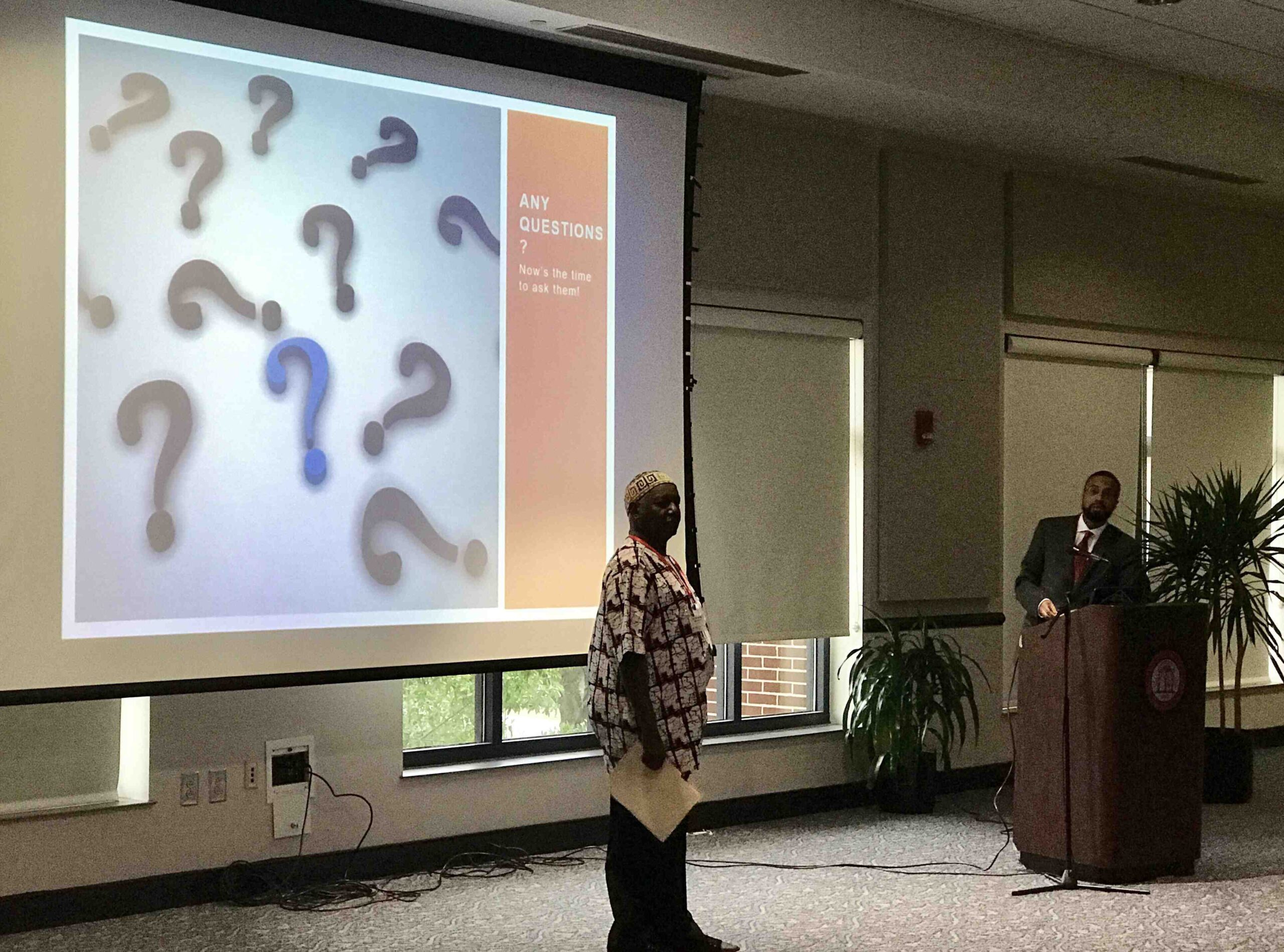 (SAVANNAH, GA – 10/23/2017) The Georgia chapter of the Council on American-Islamic Relations today delivered remarks at Savannah State University’s “The Story of Islam in Savannah,” a day-long event designed to counter prejudice and raise awareness through lectures and dialogues about Islam in Savannah.
(SAVANNAH, GA – 10/23/2017) The Georgia chapter of the Council on American-Islamic Relations today delivered remarks at Savannah State University’s “The Story of Islam in Savannah,” a day-long event designed to counter prejudice and raise awareness through lectures and dialogues about Islam in Savannah.
The series of lectures and dialogues featured speakers from Masjid Jihad of Savannah, the Islamic Center of Savannah, CAIR Georgia, Savannah State University, and religious leaders and community activists from various faiths in Savannah.
“We thank Savannah State University for hosting this important educational event, which gave students, faculty and staff a chance to learn about the contributions of American Muslims, including Savannah’s rich and vibrant Muslim community,” said Edward Ahmed Mitchell, executive director of CAIR Georgia.
One session celebrated Imam Maajid Faheem Ali, who led Masjid Jihad, Savannah’s first mosque, for almost 40 years.
Imam Maajid, who graduated from Savannah State University in 1976 with a Bachelor’s degree in Political Science, had a prominent role in spearheading city-wide interfaith religious programs in Savannah notably Congregations in Service. He also represented Muslims at several civic events including Mayoral Inaugurations, City Council meetings and County Commissioner’s meetings.
In a statement, the event organizers, including Dr. Deden Rukmana, said:
“Islam has had a long history in the United States. Many historians claim that the first Muslims came to this country in the early 14th century. Historians also confirm that 10 to 15 percent of African slaves brought to the United States were Muslims. They maintained their religion in secret and many of them were forced to convert. In the 1930s and 40s, Muslim immigrants from the Middle East began to establish communities and mosques. Muslim immigrants from Asia also made their way to the United States in the 1960s.”
Despite a long history of Islam in the country, American Muslims remain vulnerable to violence and hate crime motivated by Islamophobia. The prejudice against American Muslims has risen sharply after the terrorist attacks on September 11, 2001. The Southern Poverty Law Center (SPLC)’s Intelligence Report of the spring 2017 issue reported the number of hate groups specifically targeting Muslims in the United States has nearly tripled in the past year with Islamophobic hate crime soared.”

